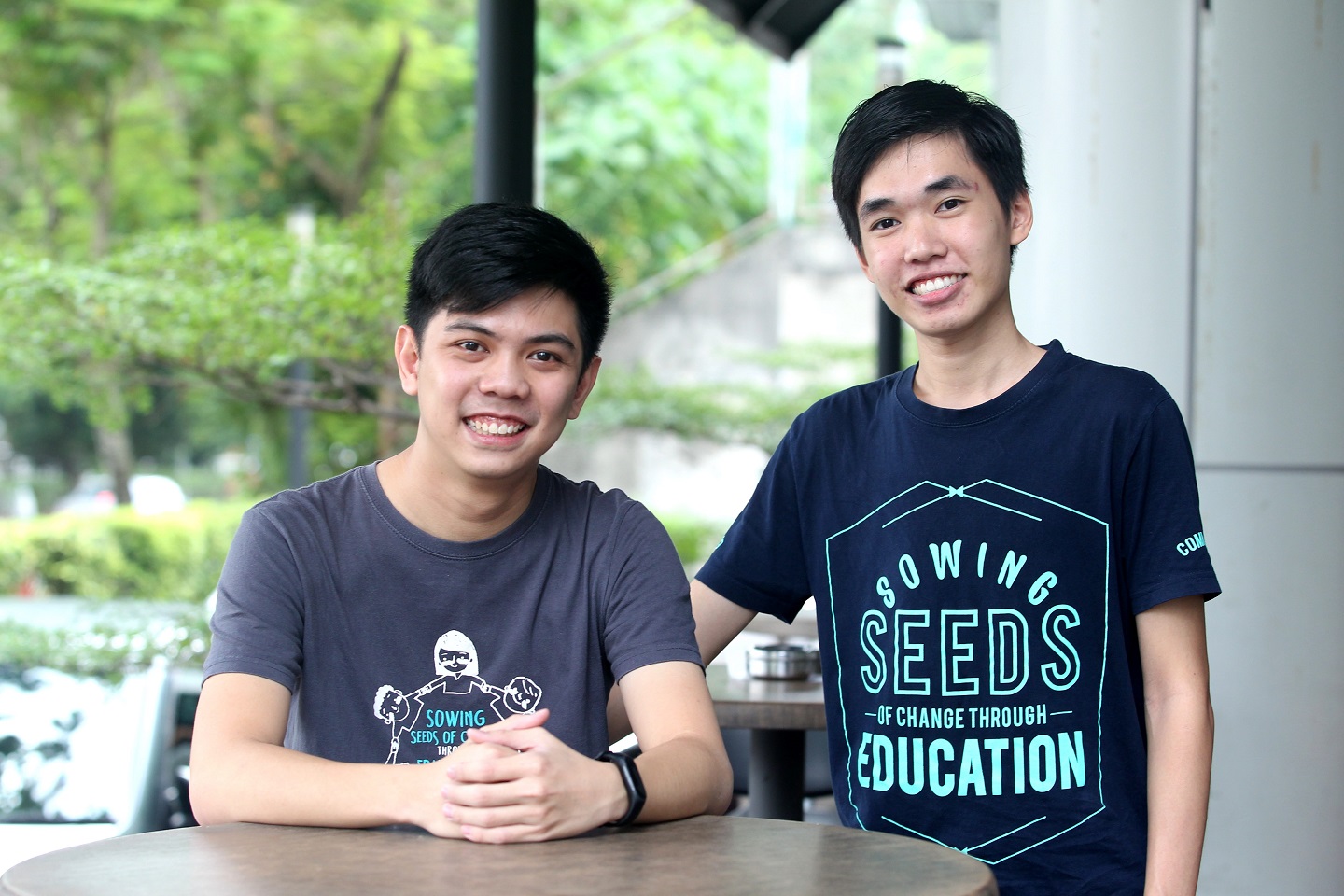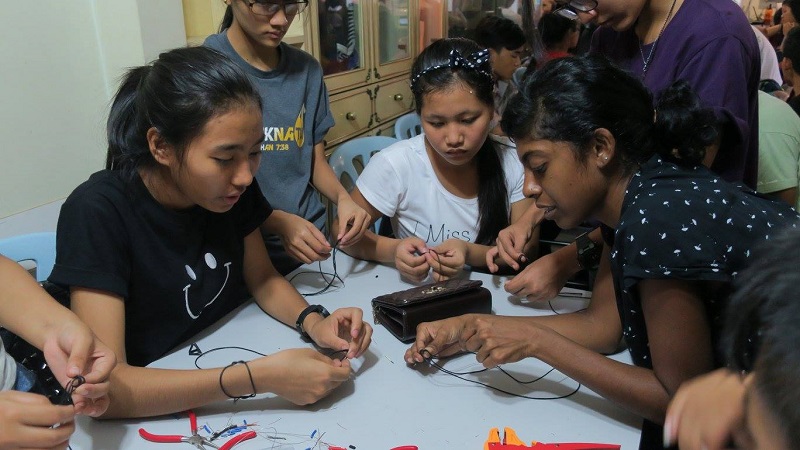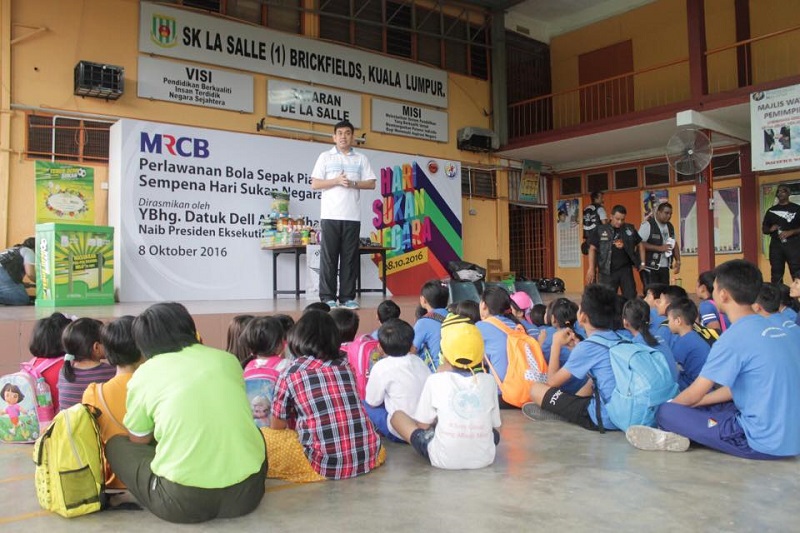
Khoo Zhen Xiang (left) and Jong Cha Yong (Photo: Suhaimi Yusuf/The Edge)
Jong Cha Yong’s journey with Hands of Hope began at a Scholar Enrichment workshop at UCSI University (UCSI) where he learnt about the many different areas of volunteerism. Particularly drawn to the plight of refugee children, he visited Chung Student Organisation, a refugee learning centre, soon after and found there was much room for improvement. A gotong-royong project was promptly organised to help the school but Jong, the current vice-president of Hands of Hope, did not intend to stop there.
Part of the university’s student fraternity known as Youth Beyond Boundaries, Hands of Hope was established in 2014 as a long-term volunteering project by Suzanne Ling, Kim Lee and Tanasha Suhandani, who have since gone on to found a number of other social impact initiatives, namely The Picha Project, E-lluminate and Kyan-Mar-Yeh Project post graduation.
Today, its beneficiaries include local and refugee children from Sri Eden, Zomi Education Centre, Rohingya Community School and Ruth Education Centre. Hands of Hope’s mission is two-pronged. The first is to sow seeds of change in underserved communities by providing quality education and honing life skills. Secondly, it aims to instil volunteerism by creating a platform to reach out to the communities it works with and offering youths an avenue for personal growth and development.
“I felt I could do more and they could really use the help,” says the 21- year-old chemical engineering student, who began volunteering at a number of other learning centres. Since then, he has led Hands of Hope alongside its president and his peer, Khoo Zhen Xiang, who is pursuing logistics management at UCSI.

Thus far, the programme has seen 300 people volunteering two hours of their time weekly at the beneficiary schools. At Sri Eden, a special needs school, they facilitate the teachers’ work in the classroom by giving the students one-to-one attention.
Run on very small budgets, refugee schools face a shortage of teachers. “Volunteers from other universities are allocated to various refugee learning centres for two hours weekly to teach Mathematics, Science and English,” Khoo says. “The teachers are passionate about teaching the students but may not be equipped with the necessary [skills] to allow them to properly do so,” Jong says, explaining that the volunteers complement this through knowledge sharing.
Over the years, the organisation has noticed an increasing dropout rate in refugee schools due to financial struggles. Children are often faced with the dilemma of staying in school or working to help feed the family. The Sponsor-A-Child programme hopes to address this problem and ultimately keep more children in school.
Another programme, called My One Day Uni Life, aims to encourage the children to stay in school and pursue their dreams. Grouped according to their ambitions, the students get a glimpse into the life of a university student. “We felt one day was not enough and we wanted to have that sense of continuity. Students were even given assignments to complete and bring to class the following day,” Khoo says about the programme that has since been extended to two days.

Efforts to spread awareness of refugee-related causes led to its Refugee Simulation programme — with discrimination, life in Malaysia and smuggling as the themes — conducted at three stations. “As Malaysia is not a signatory to the 1951 Refugee Convention, the three main issues faced by refugees here are access to education, employment and healthcare. In terms of education, they only get basic knowledge from their community learning centres; they do not learn world history, physics or biology, for instance,” Khoo explains, adding that the plight of refugees may seem distant and detached to most.
Part of the simulation involves participants playing the role of refugees who are tied up, transported and forced to sign contracts that they do not comprehend, in an effort to cultivate better public understanding.
Although the organisation has traditionally been run by UCSI students, Khoo and Jong would like to break this practice and continue working on this initiative after they have graduated. Above everything else, the refugees’ sheer sense of determination, especially that of the children, has impressed Khoo and he believes the experience has widened his world view and instilled a deep sense of empathy.
On what motivates them, Khoo and Jong say interacting with the students in the programme brightens their day. “Their energy is super powerful and it keeps me motivated to continue doing what we do at Hands of Hope,” Khoo says. “Going back to the community from time to time and seeing the impact of what we do is one way we recharge ourselves.”
This article first appeared on Oct 8, 2018 in The Edge Malaysia.


